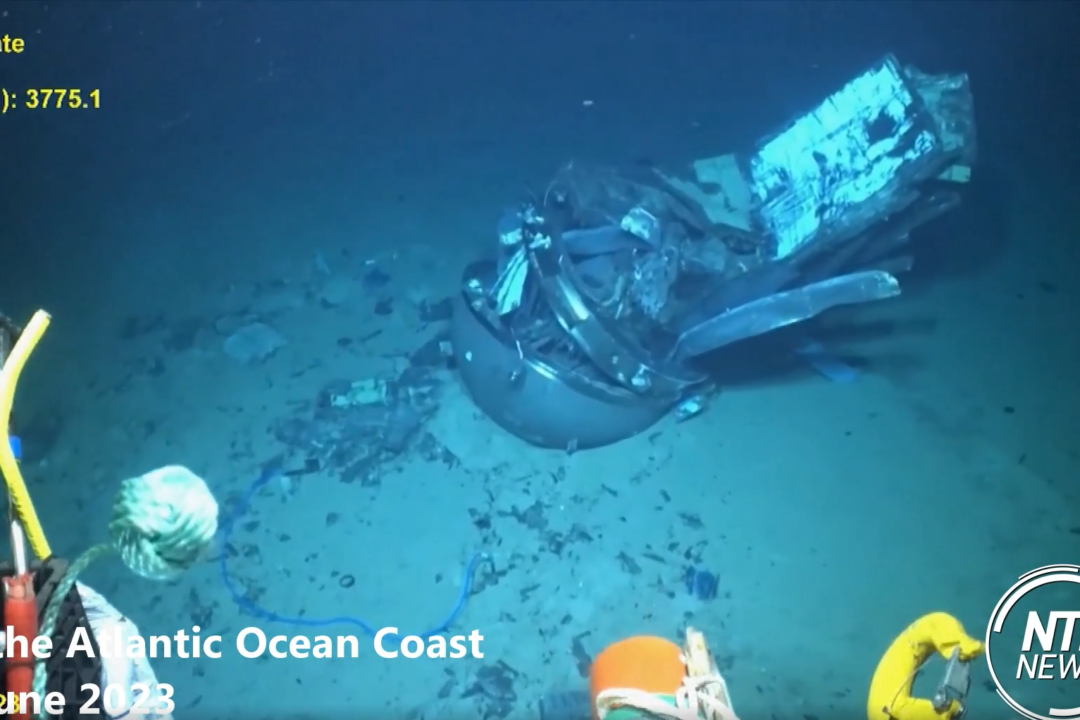Science
NTSB Reveals Titan Submersible’s Hull Failure Caused Tragedy

The National Transportation Safety Board (NTSB) has determined that a critical failure in the hull of the Titan submersible caused its implosion during a dive to the Titanic wreck site in June 2023. The report, released on October 15, 2023, outlines the factors leading to the tragic incident that claimed the lives of all five individuals aboard.
On June 18, 2023, the Titan, an experimental craft developed by the private company OceanGate, was conducting an expedition to explore the famed wreckage located in the North Atlantic Ocean. According to the NTSB report, the pressure hull of the Titan failed, resulting in an immediate and catastrophic implosion.
The investigation revealed that the primary cause of this hull failure was linked to OceanGate’s insufficient engineering processes. The NTSB stated, “We determined that the probable cause of the hull failure and implosion of the submersible Titan was OceanGate’s inadequate engineering process, which failed to establish the actual strength and durability of the Titan pressure vessel.”
The findings highlight serious deficiencies in the design and testing protocols employed by OceanGate, raising critical questions about safety standards for deep-sea exploration vehicles. The Titan was built in 2021 and had undergone various tests prior to its ill-fated voyage, but the NTSB’s conclusions suggest that these assessments did not adequately ensure the craft’s structural integrity.
In addition to the engineering shortcomings, the NTSB report emphasized the need for enhanced regulations governing the operation of submersibles in extreme environments. The agency noted that the risks associated with deep-sea exploration require strict adherence to safety measures, especially when human lives are at stake.
The implications of this report extend beyond the Titan incident, potentially affecting future deep-sea expeditions and the companies involved in such ventures. The NTSB’s findings aim to serve as a wake-up call for the industry, prompting a reevaluation of safety practices and engineering standards.
This tragic event has raised significant public interest in the safety of submersibles and underwater exploration. As investigations continue, the NTSB’s recommendations will likely influence regulatory frameworks and operational protocols for companies involved in deep-sea tourism and research.
In the wake of this report, OceanGate has yet to respond publicly to the findings, but the company’s commitment to safety will be under scrutiny as the industry moves forward. The loss of the five individuals aboard the Titan remains a poignant reminder of the inherent dangers of exploring the depths of the ocean.
As the maritime community processes this tragedy, the NTSB’s report serves to inform and guide future endeavors, ensuring that safety remains the top priority in underwater exploration.
-

 Science1 week ago
Science1 week agoResearchers Challenge 200-Year-Old Physics Principle with Atomic Engines
-

 Politics1 week ago
Politics1 week agoNHP Foundation Secures Land for 158 Affordable Apartments in Denver
-

 Health1 week ago
Health1 week agoNeuroscientist Advocates for Flag Football Until Age 14
-

 Health1 week ago
Health1 week agoFDA Launches Fast-Track Review for Nine Innovative Therapies
-

 Lifestyle1 week ago
Lifestyle1 week agoLongtime Friends Face Heartbreak After Loss and Isolation
-

 World1 week ago
World1 week agoGlobal Military Spending: Air Forces Ranked by Budget and Capability
-

 Politics1 week ago
Politics1 week agoIsraeli Air Strikes in Lebanon Kill One, Wound Seven Amid Tensions
-

 World1 week ago
World1 week agoTroops to Enjoy Buffalo Chicken, Thai Curry in 2026 MREs
-

 Business1 week ago
Business1 week agoMaine Housing Inventory Surges to Post-Pandemic High
-

 Top Stories1 week ago
Top Stories1 week agoUnforgettable Moments: The Best Victoria’s Secret Performances
-

 Politics1 week ago
Politics1 week agoMassachusetts Lawmakers Resist Audit After Voter Mandate
-

 Lifestyle1 week ago
Lifestyle1 week agoJump for a Cause: San Clemente Pier Hosts Fundraiser Event









